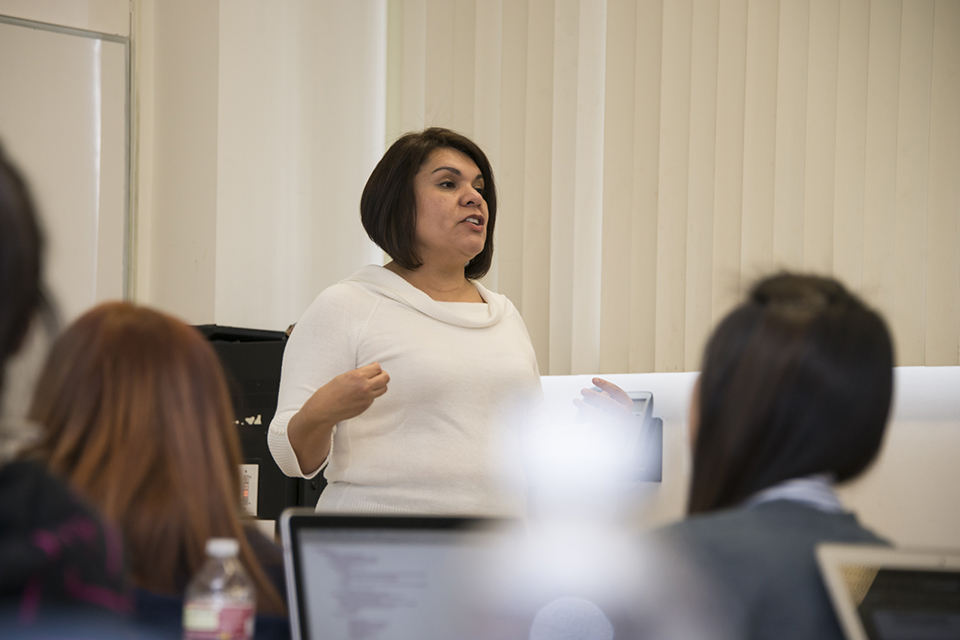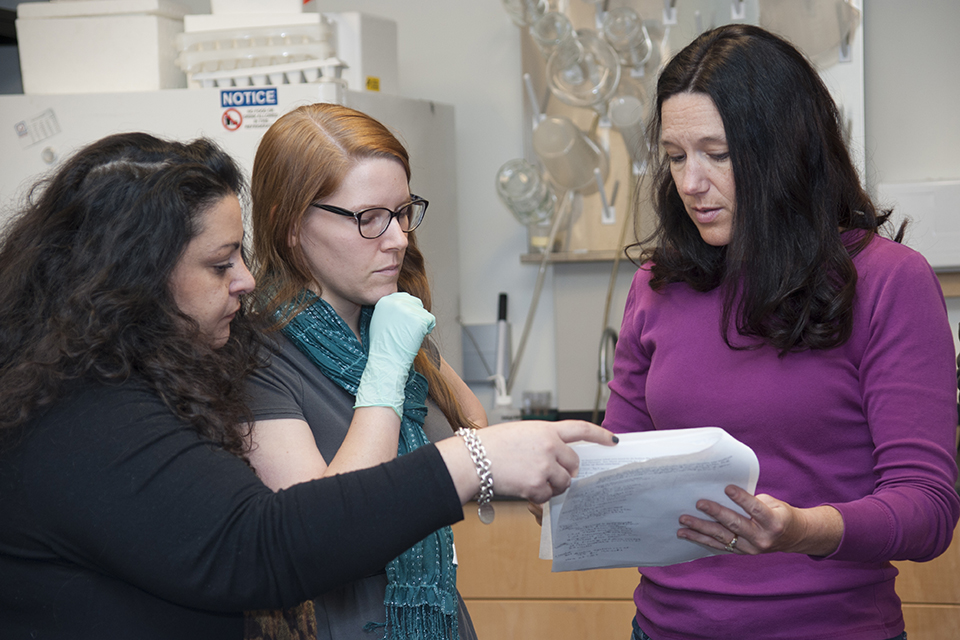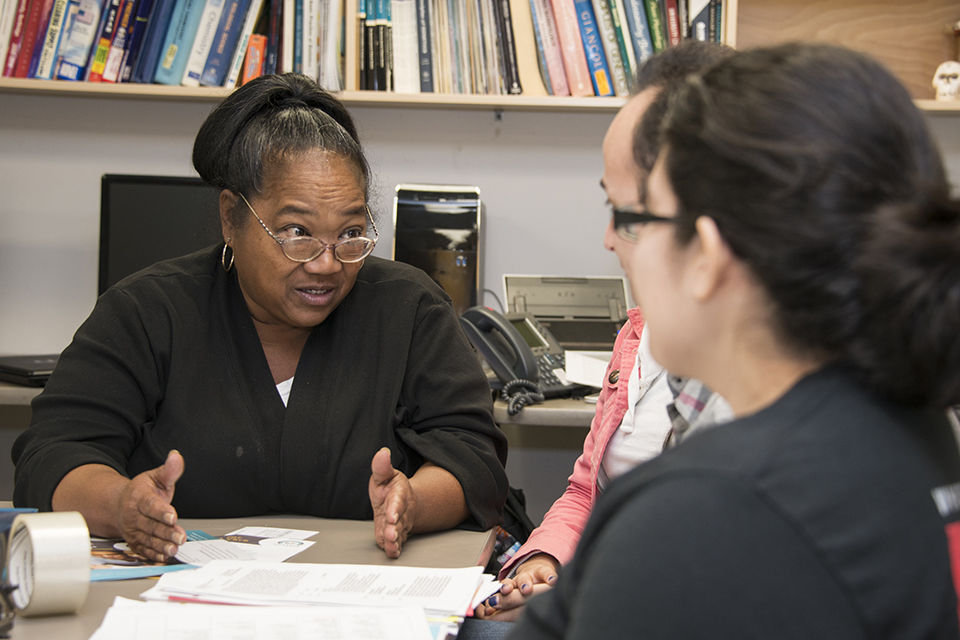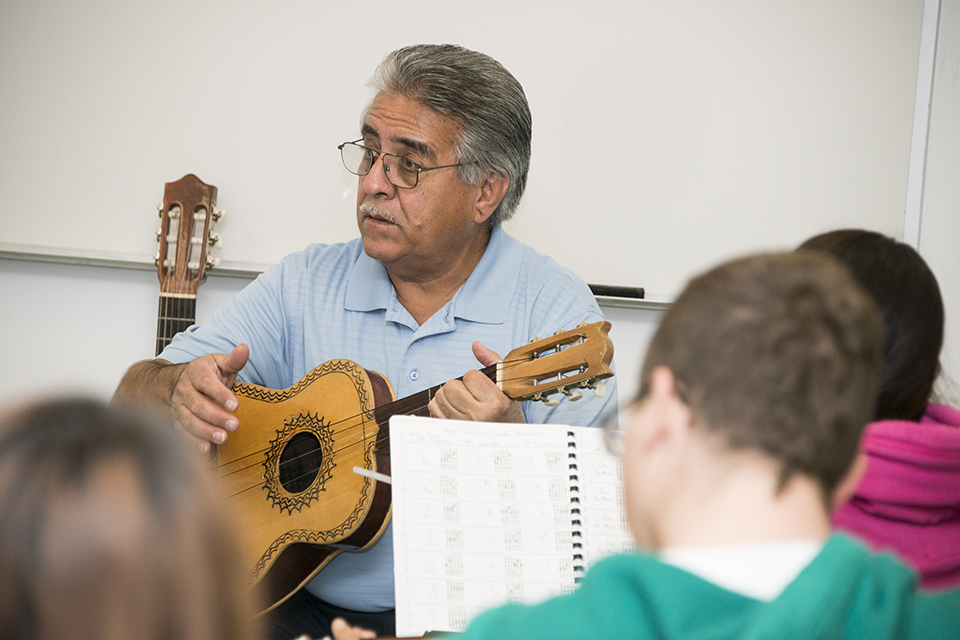EOP Celebrates Mentoring at CSUN
Four California State University, Northridge employees were honored for being great mentors at the 2013 Don Dorsey Excellence in Mentoring Awards.
The awardees are psychology professor Gabriela Chavira ’94 (Psychology/Chicana/o Studies); biology professor Cindy Malone; Parthenia Hosch, administrative analyst in the Department of Biology; and Chicana/o Studies professor Everto “Veto” Ruiz ’71 (Sociology). The four were recognized at a campus reception on Nov. 20 for providing a range of support to students, from offering a safe haven for students in need of comfort to inspiring students disheartened by a bad grade to providing a friendly research lab.
“Our award recipients, and all who were nominated, are dedicated staff and faculty who creatively infuse mentoring into their teaching, research work and daily interactions with students,” said Glenn Omatsu, coordinator of CSUN’s Faculty Mentor Program. “They also embody the values of equity and social justice on our campus which are connect to the mission of mentoring students in state universities.”
The annual awards are presented by the Educational Opportunity Program’s Faculty Mentor Program. It recognizes faculty and staff who have made exceptional contributions to mentoring of past and present students; who take a holistic approach to mentoring, including academic and personal support; and who support the university’s commitment to the success of students of diverse backgrounds and communities.
Chavira is an alumna who has taught at CSUN for nine years. One of her current research projects, Pathways to College, examines how families, schools and students contribute to academic achievement of Latino and other middle school students. She has mentored numerous students through her research lab and her association with National Institutes of Mental Health’s Career Opportunities in Research, NCMHD Research Infrastructure in Minority Institutions, CSU Sally Casanova Predoctoral Scholars, the McNair Scholars programs and the Department of Psychology’s Teaching Intern Program.
“If it weren’t for my mentors, I wouldn’t be here,” said Chavira, who has a doctorate from the University of California, Santa Cruz. “Many times first-generation students don’t realize the important of their grades and other things. I don’t mind helping them if I see the passion and the commitment.”
Malone has taught at CSUN since 2005. She mentors students through her research lab and her grant project, the CSUN-UCLA Bridges to Stem Cell Research. She also mentors students — both biology majors and non-biology majors — through her creative and engaging approaches to teaching, which include singing songs with biology lyrics and dressing up as a clown and juggling for students that do well on exams.
“I have spent my entire life helping students who struggled academically,” said Malone, who always did well in school. “I goof around and try to be as open and unpretentious, so students feel welcomed.”
Hosch has worked at CSUN for 29 years. She has played a key role in two programs: Minority Access to Research Careers (MARC U-STAR) and Minority Biomedical Research Support (MBRS). These programs focus on first-generation college students and students from underrepresented communities to help them become involved in biomedical research and to pursue careers in these fields.
“Mentoring: I have accepted it as my moral responsibility,” Hosch said. “I listen and I show concern, and sometimes I have to advocate for the students. Sometimes all the student needs is for me to listen and not judge them.”
As a student in the 1960s, Ruiz formed the United Mexican American Students chapter with about 15 to 20 students. The group later became MEChA (Moviemento Estudiantil Chicana/o de Aztlan). He has been fighting for students, particularly students of color, since during his more than four decades at CSUN.
“I know what it’s like to be overwhelmed by an institution and not feel like you belong,” said Ruiz, who helped form EOP and establish the Departments of Pan African Studies and Chicana/o Studies. “The students I have tried to help over the years have faced many challenges, having to leave their home and sometimes take multiple buses to get here.
“I wanted them to know they had family and a nurturing atmosphere to give them strength,” Ruiz said.
A talented Mariachi performer and teacher, he is a pioneer in using music and performance to raise consciousness. Now retired, Ruiz continues to mentor students through EOP’s bridge program in his popular “Chicanos and the Arts” class.
For more information about mentoring, visit the EOP website.





 experience
experience